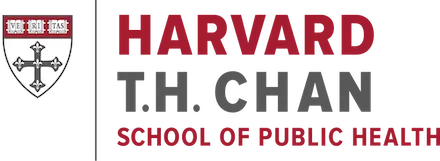Data Science Professional Certificate
Real-world data science skills to jumpstart your career
This program gives learners the necessary skills and knowledge to tackle real-world challenges as demand for skilled data science practitioners rapidly grows.

2-3 hours per week
What You'll Learn
The program covers concepts such as probability, inference, regression, and machine learning and helps you develop an essential skill set that includes R programming, data wrangling with dplyr, data visualization with ggplot2, file organization with Unix/Linux, version control with git and GitHub, and reproducible document preparation with RStudio.
In each course, we use motivating case studies, ask specific questions, and learn by answering these through data analysis. Case studies include: Trends in World Health and Economics, US Crime Rates, The Financial Crisis of 2007-2008, Election Forecasting, Building a Baseball Team (inspired by Moneyball), and Movie Recommendation Systems.
Throughout the program, we will be using the R software environment. You will learn R, statistical concepts, and data analysis techniques simultaneously. We believe that you can better retain R knowledge when you learn how to solve a specific problem.
The course will be delivered via edX and connect learners around the world. By the end of the course, participants will be able to:
- Fundamental R programming skills
- Statistical concepts such as probability, inference, and modeling and how to apply them in practice
- Gain experience with the tidyverse, including data visualization with ggplot2 and data wrangling with dplyr
- Become familiar with essential tools for practicing data scientists such as Unix/Linux, git and GitHub, and RStudio
- Implement machine learning algorithms
- In-depth knowledge of fundamental data science concepts through motivating real-world case studies
Courses in this Program
1–2 hours per week, for 8 weeks
Build a foundation in R and learn how to wrangle, analyze, and visualize data.
1–2 hours per week, for 8 weeks
Learn basic data visualization principles and how to apply them using ggplot2.
1–2 hours per week, for 8 weeks
Learn probability theory—essential for a data scientist—using a case study on the financial crisis of 2007-2008.
1–2 hours per week, for 8 weeks
Learn inference and modeling, two of the most widely used statistical tools in data analysis.
1–2 hours per week, for 8 weeks
Keep your projects organized and produce reproducible reports using GitHub, git, Unix/Linux, and RStudio.
1–2 hours per week, for 8 weeks
Learn to process and convert raw data into formats needed for analysis.
1–2 hours per week, for 8 weeks
Learn how to use R to implement linear regression, one of the most common statistical modeling approaches in data science.
2–4 hours per week, for 8 weeks
Build a movie recommendation system and learn the science behind one of the most popular and successful data science techniques.
15–20 hours per week, for 2 weeks
Show what you've learned from the Professional Certificate Program in Data Science.
Your Instructor
Professor of Biostatistics, T.H. Chan School of Public Health
Rafael Irizarry is a Professor of Biostatistics at the Harvard T.H. Chan School of Public Health and a Professor of Biostatistics and Computational Biology at the Dana Farber Cancer Institute. For the past 15 years, Dr. Irizarry’s research has focused on the analysis of genomics data. During this time, he has also taught several classes, all related to applied statistics. Dr. Irizarry is one of the founders of the Bioconductor Project, an open source and open development software project for the analysis of genomic data. His publications related to these topics have been highly cited and his software implementations widely downloaded.
Ways to take this program
When you enroll in this program, you will register for a Verified Certificate for all 9 courses in the Professional Certificate Series.
Alternatively, learners can Audit the individual course for free and have access to select course material, activities, tests, and forums. Please note that Auditing the courses does not offer course or program certificates for learners who earn a passing grade.